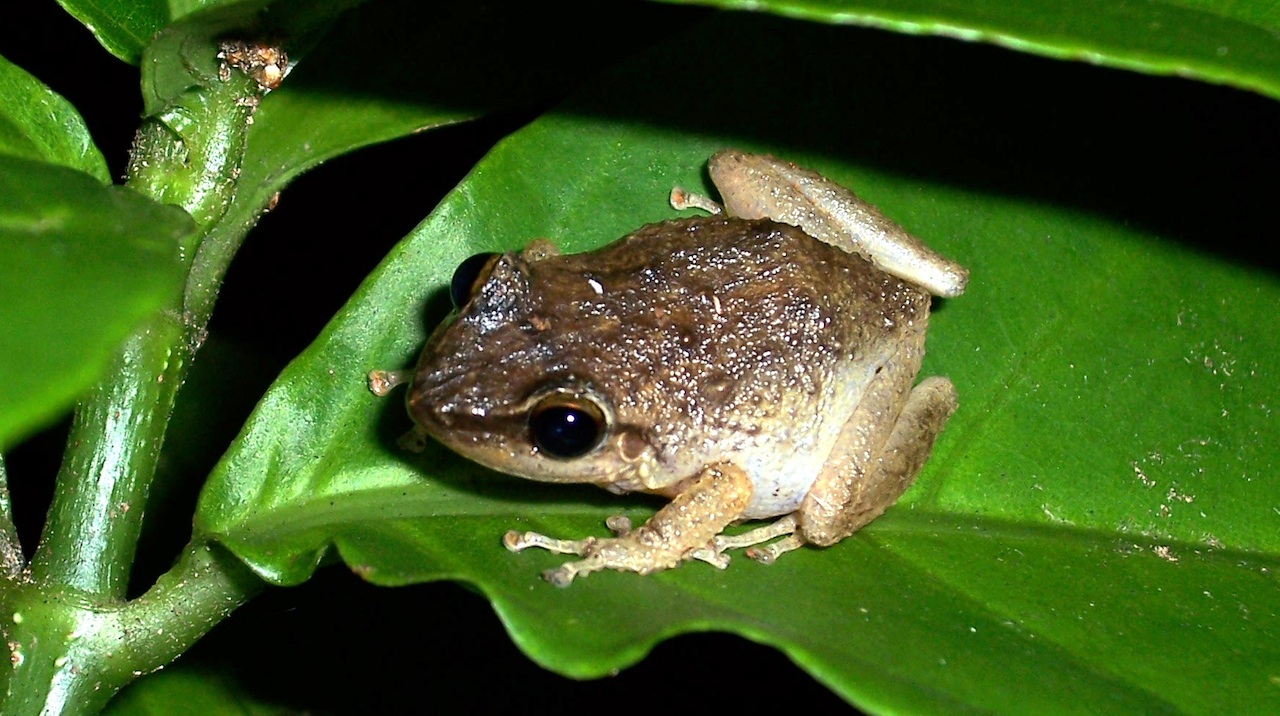According to a report published in the journal Proceedings of the Royal Society B: Biological Sciences, an unexpected effect of climate change might have Puerto Rico’s coqui frogs croaking at a different pitch than they did decades ago.
In 1983 and 1984, Peter Narins and a group of other researchers discovered that the higher the frogs lived in the mountains, where air is colder, the bigger their bodies were, and the lower their croaks. In 2006, Narins revisited the site, and found that on average, the frogs were smaller and croaked at a significantly higher pitch. The group’s abstract details the connection to global warming.
All of the observed differences are consistent with a shift to higher elevations for the population, a well-known strategy for adapting to a rise in ambient temperature. Using independent temperature data over the same time period, we confirm a significant increase in temperature, the magnitude of which closely predicts the observed changes in the frogs’ calls.
Consequences for the frogs are more than aesthetic. As PhysOrg explains: “The problem with changes in male frog calls is that quite often it means directing them at females that are unable to respond to them, or in some cases, hear them at all.” Missed frog call connections means less mating, means population decline, means, in the researchers’ words, dire consequences for “an integral component of the food web in the Puerto Rican rainforest.”


